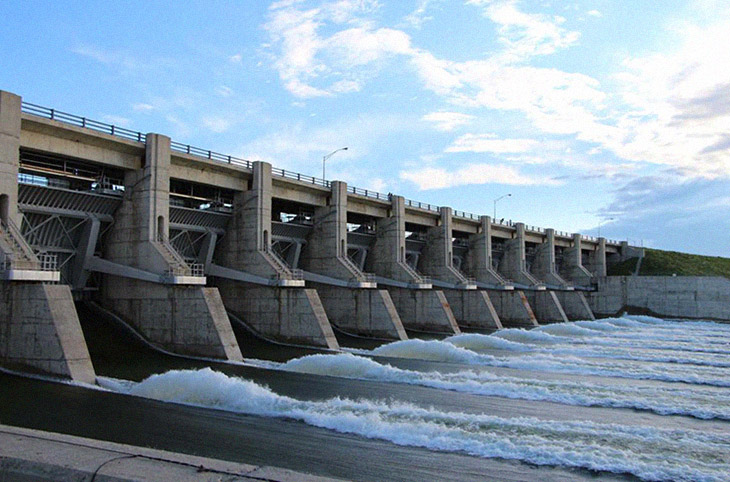
In what many believe is an incredibly surprising fact, something has shifted in the natural world, and in an almost unimaginable scale at that. And what that is, is the fact that humans are now in control of the majority of the world’s freshwater, which is one of the planet’s most vital resources.
Researchers share that they did their first global survey on human impact on the water cycle. These research scientists utilized NASA satellites in order to remotely measure and quantify the level of water that remains in the world’s bodies of fresh water, totaling 227,386 of the world’s lakes, ponds, and both in the small and large reservoirs.
Although human-managed reservoirs – like artificial dams and other forms of water reserves – only make up ‘3.9 percent of this giant planetary-scale system of surface-level water storage,’ what may seem like just a miniscule amount of water is actually proof that of just how much control humans have over the world’s current freshwater fluctuations.
It turns out that when the amount of the overall supply of water levels in both natural and human-managed systems were calculated, it was the human-controlled reservoirs that actually represented 57 percent of all the surface water variability throughout the planet, which actually exceeds more than half of the world’s freshwater systems.
As explained by Stanford University geophysicist, Sarah Cooley, “We tend to think of the water cycle as a purely natural system: Rain and snowmelt run into rivers, which run to the ocean where evaporation starts the whole cycle again.”
“But humans are actually intervening substantially in that cycle. Our work demonstrates that humans are responsible for a majority of the seasonal surface water storage variability on Earth.”
NASA’s Ice, Cloud and land Elevation Satellite 2 (ICESat-2) gathered data for 22 months, which showed results that provided a first-ever snapshot of water storage around the globe. The snapshot managed to capture and measure bodies of water the size of a football field as it collected the data, which can be found in the journal, Nature.
Cooley also shared, “Previous satellites have not been able to come anywhere close to that.” But where the scientific achievements of the research were impressive, sadly, the take-aways, not so much.
“There are a lot of ways in which this is bad for the environment,” explained Cooley.
The reasons behind this are because there are a number of negative effects that occur on natural ecosystems because of a lack of water, to the appearance of greenhouse gas emissions coming from a number of artificial reservoir water surfaces.
Without a doubt, there are also positives when it comes to human-run water reservoirs as well. Aside from humans managing to control the water supply, they also power such things like hydropower systems. Meanwhile, dams also play a hug role in helping protect certain areas from flooding due to natural disasters.
Yet despite all of this, it’s still unsettling knowing that humans are the ones that control the majority of freshwater, when in reality, it should really be the earth that has prevalence over one of its most organic resources.
This is yet another reminder of how much impact the human race has had on the planet and the environment. In fact, the influence is so great that we are living in a time when we can see these effects all the way from outer space.
Environmental scientist from Brown University, Laurence Smith, said, “Of all the volume changes in freshwater bodies around the planet – all the floods, droughts and snowmelt that push lake levels up and down – humans have commandeered almost 60 percent of that variability.”
She added, “That’s a tremendous influence on the water cycle. In terms of human impact on the planet, this is right up there with impacts on land cover and atmospheric chemistry.”
What are your thoughts? Please comment below and share this news!
True Activist / Report a typo


